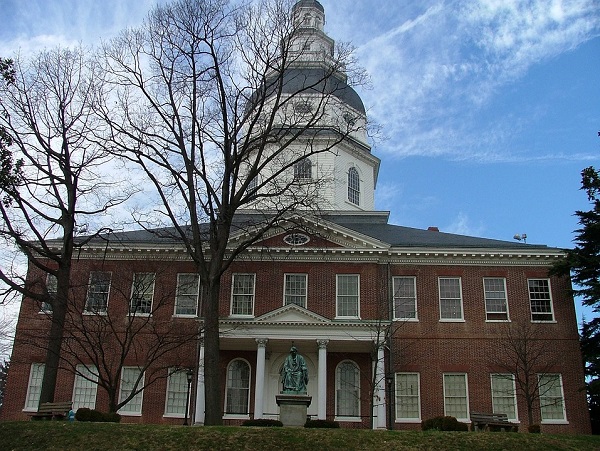ANNAPOLIS, MD—The Maryland House of Delegates gave final approval Wednesday to a bill establishing a commission to study reparations for the descendants of enslaved people, sending the measure to Governor Wes Moore amid ongoing questions about his stance on the proposal. The 101-36 party-line vote positions Maryland to join a small group of states examining racial inequities stemming from slavery and discriminatory policies.
The bill, a priority of the Legislative Black Caucus of Maryland, cleared the Senate last month and overcame Republican-led amendments in the House before its passage. If signed into law, the Maryland Reparations Commission would assess federal, state, and local policies from 1877 to 1965—covering the post-Reconstruction and Jim Crow eras—that contributed to economic disparities, including housing segregation, redlining, and tax policies. The commission, composed of nearly two dozen volunteers, including representatives from historically Black colleges and universities, must deliver a preliminary report by January 1, 2027, and a final report by November 1, 2027.
“This bill is needed because of the history of slavery in Maryland and the role that our state played,” said Del. Joseline Peña-Melnyk, a Democrat from Prince George’s and Anne Arundel counties, who chairs the House Health and Government Operations Committee. She highlighted how Black Marylanders in the 20th century paid taxes but were denied access to roads and schools they helped fund.
The legislation comes as Maryland grapples with a $3.3 billion budget deficit, projected to balloon to $6.7 billion by fiscal year 2028. Senate Minority Whip Justin Ready, a Republican from Carroll and Frederick counties, criticized the bill’s timing, arguing it diverts attention from pressing fiscal challenges. “I don’t understand why this is being advanced when we’re facing such significant deficits,” Ready said, estimating the commission’s initial annual cost at $54,500.
Gov. Moore, a Democrat, has remained noncommittal on the measure. When asked in January by WBFF-TV if he supported the bill, Moore sidestepped the question, saying, “Nah, we are going to work with the Maryland General Assembly on a whole collection of different issues,” and emphasizing economic growth and affordability. His office did not respond directly to further inquiries about the reparations proposal this week, instead pointing to his focus on budget cuts and tax relief.
The House debate saw emotional moments and sharp partisan divides. Del. Stephanie Smith, a Baltimore City Democrat, defended the bill, noting that it seeks only “a conversation and a commission to acknowledge” the contributions of Black Marylanders. Republicans, however, attempted to alter the measure. One rejected amendment from Del. Ryan Nawrocki of Baltimore County sought to include descendants of Union soldiers in the reparations discussion, while another from Del. Mark Fisher of Calvert County tied the bill to school choice—a proposal that drew rebukes from Democrats.
Maryland would become the fourth state with a reparations commission, following California, Illinois, and New York, if Moore signs the bill. California’s task force recommended payments of up to $1.2 million per eligible recipient in 2023, though no funds have been disbursed. Ready warned that the bill could complicate Moore’s national profile, suggesting it “is a distraction to trying to get real problems solved.”
The vote elicited hugs, smiles, and tears among some delegates, including Del. Aletheia McCaskill of Baltimore County, whose companion House bill stalled in committee. “They lived, they died, and they were taxpayers that never got what they invested in,” Smith said, encapsulating the bill’s intent to address historical injustices.
Moore’s decision on the legislation, effective July 1 if signed, remains uncertain as the legislative session nears its close next week.
Photo via Pixabay
Do you value local journalism? Support NottinghamMD.com today.

